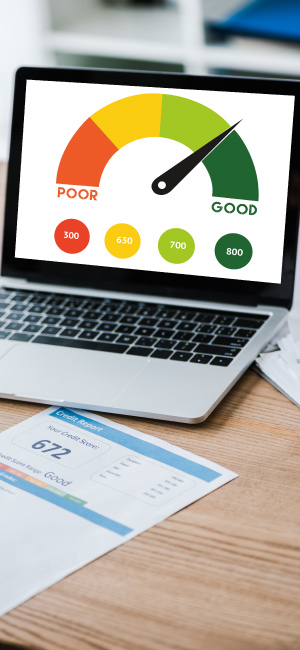What is a good internet speed?

Matthew Harrington

As the internet becomes more and more essential in our daily lives, the need for fast, reliable internet service is increasing exponentially. If you're like most people, you probably use the internet every day for a variety of different activities. Whether you're checking your emails, having online video calls, gaming or streaming movies, you need the proper internet speed to do it all without any issues.
A good internet speed is one that allows you to do what you need online without any significant slowdowns or connection issues. Of course, what counts as a "good" speed can vary depending on your specific needs and activities.
This is your ultimate guide to internet speed and finding the best one for you.
What internet speed do you need?
The best internet speed depends entirely on you and your needs. While download speeds lower than 25 Mbps are considered too slow to be considered broadband or good home Wi-Fi, an internet speed of at least 10 Mbps is sufficient for most basic online activities like checking your email and browsing the web.
However, if you plan to do more demanding activities like streaming Netflix or online gaming, 5 Mbps - 10 Mbps might cause buffering and connectivity issues. You'll need faster internet with a speed of at least 25 Mbps. And if you have multiple people, say five devices simultaneously using the internet connection to upload and download, you'll need an even higher speed to avoid any slowdown.
You may also see references to the gigabit internet. Gigabit internet is simply a new internet connection with a speed of 1 Gbps (gigabits per second). While it is not yet widely available, it has the potential to revolutionize the way we use the internet by providing ultra-fast speeds that can handle even the most data-intensive tasks.
How to do an internet speed test
The best way to check if your internet speed is fit best for you is to run a speed test and see how your current internet speed measures up. If it's lower than what's recommended for your needs, there are a few things you can do to try and improve it.
There are a few different ways and tools you can use to check what your current internet speed is One popular option is speedtest.net, which will give you an accurate reading of your current download and upload speeds from your desktop. The speed test will only take only a few minutes to complete and will give you an accurate reading of your current download and upload speeds.
You can also run an internet speed test from your router's web interface. To do this, you'll need to log in to your router's settings page (the exact address will vary depending on your router) and look for the "bandwidth" section. Once you've found it, just follow the instructions and you'll get an accurate reading of your internet speed.
And finally, you can also use a mobile speed testing app to check your internet speed. There are a number of different options available for both iPhone and Android devices such as Speedtest by Ookla.
After getting the test results on your current speed, you can compare it to the recommended speeds for different activities to see if any changes need to be made. If your speed is lower than what's recommended for your needs, there are a few things you can do to try and improve it.

Why your internet connection might be slow
There are a number of different reasons why your internet connection might not be the fastest it could be.
Your internet type.
The types of internet connections differ, and each has its advantages and disadvantages - from speed to price.
There are various types of internet connections but the two most common types are cable and DSL.
Cable internet is typically faster than DSL, but it can be more expensive. If you're looking for a fast and reliable connection, cable is a good option.
DSL internet is slower than cable, but it's usually cheaper. If you're on a budget, DSL may be the best choice for you.
Your router or modem.
Another reason you might not be getting the fastest internet possible might be that your router is outdated or not set up correctly. If you're using an older router, it might not be able to handle the speed of your current internet service provider's plan. In this case, you might need to upgrade to a newer, more powerful router.
The number of internet-connected devices.
Each device that's connected to your internet will use up some of your bandwidth - less bandwidth means less speed. You might be experiencing slower speeds because of the number of connected devices with internet access. To fix this, you can try disconnecting some of your devices, staggering their usage times or connecting them to a separate network entirely.
Try these 5 tips to improve your internet speed
Check your computer for viruses and malware.
Viruses and malware can eat up a lot of your bandwidth and computer's resources, which can slow down your internet speed. Running a scan with a trusted antivirus program can help to remove any malicious software from your computer, improve your speed and make sure your computer is clean.
You can usually find a virus scanner by opening your antivirus software and running a scan. If you don't have antivirus software installed, you can download a free virus scanner from the internet.
Optimize your device.
Another way you could improve your internet speed is by upgrading your router or modem. What's the difference between the two? A router is a device that connects your home network to the internet, while a modem is a device that connects your home network to your ISP's network.
If you're using an outdated device, it might not be able to handle the speed you're paying for and slowing down your connection. Upgrading to a newer model can sometimes help to bump up the speed. You need a router that's right for your needs. If you have a lot of devices that need to be connected to the internet without the use of wiring, for example, you'll need one with good range and speed.
Pro tip: If you have a landline phone, you can also use it to help fasten your internet speed. One way to do this is to plug your modem into your phone line. This will give your internet connection a boost and may help improve your speed.
Another possibility your connection might be slow is the range between your router and devices. To get a better wi-fi signal and speed, consider moving your device to a more central location.
Add an ethernet cable.
Ethernet is a type of wired connection that is commonly used to connect computers and other devices to the internet. Ethernet cables are typically faster and more reliable than wireless connections. For activities that require fast internet like streaming video, gaming and downloading large packets of data, having an ethernet might be useful.
Check for faulty wiring or interference.
If the wiring in your home is old or damaged, it could be causing problems with your speed. That and interferences from other devices that use radio frequencies, such as baby monitors, microwaves, and cordless phones might be at the core of your unreliable connection. If you suspect that either of these things are at the root of your slow internet speed, you can try moving your router to a different location or disconnecting the devices causing interference.
If even after trying these things you're still having trouble, have a professional take a look to see if everything is in working order.
Change your internet plan to a faster one.
After taking an internet speed test, you might find that your current internet speed is not enough for your needs. In this case, consider changing your internet plan to one with faster speeds, especially if your entire home is connected to one device.
Before you make the move, ensure that you know what your current speed is. This way, you can compare your results to the speed of the new plan and make sure it's an improvement.
Coming after 4G, 5G is one of the newest types of internet connection. It is a wireless connection that is becoming more and more popular. 5G speeds are typically much faster than other types of internet connections with an average data rate of 100 Mbps. So if you're looking for a fast internet speed, you may want to consider getting a 5G connection.

Wrapping up
A good internet speed is one that is fast enough for your needs.
To find out if your connection speed is sufficient for your daily internet activity and that you're getting the speed your internet service provider promised, you can perform an internet speed test.
You might find that your connection is slow. And for that, there are many reasons. But the good news is that there are also some things you can do to get faster internet.










